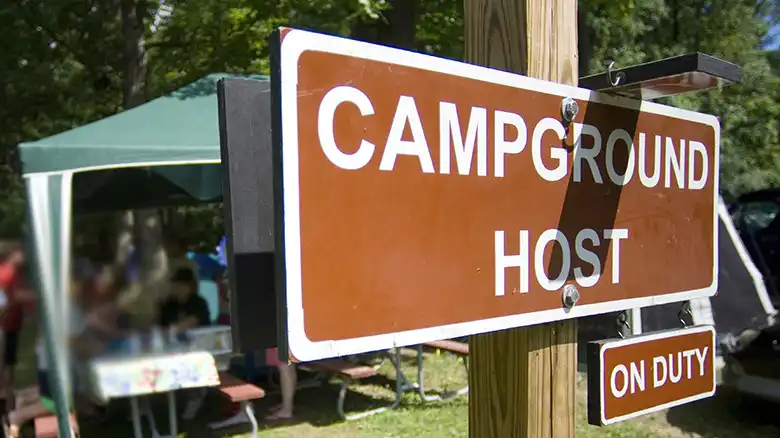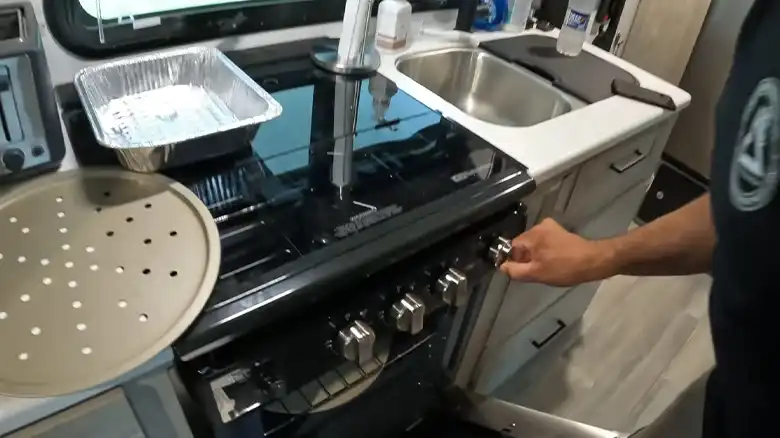As an outdoor enthusiast who invested in a used travel trailer to facilitate year-round weekend adventures, I naturally worried whether its aging foundation met current safety standards for life on the road. Rationally I knew thorough RV inspections occurred during manufacturing audits originally. But had any deficient materials or workmanship issues emerged through the years or mileage potentially?
My consumer background knew several industries self-regulate quality benchmarks via trade associations. I wondered if any comparable recreational vehicle bodies similarly existed defining best practices or requiring member accountability around customer protections from flaws. Even minor construction vulnerabilities would compromise trip comforts and mobility confidence motivating my curiosity.
Googling industry terms, I first discovered the Recreation Vehicle Industry Association (RVIA) and its extensive standards guiding virtually every facet of RV design, performance, and durability. RVIA collaborates directly with safety experts crafting protocols and checklist criteria for electrical systems, chassis, plumbing, fire prevention, and sustainably across 400 pages of specifics manufacturers must satisfy during inspection testing to achieve certification. This badge signals an RV verified meeting all health, safety, and regulatory duties owed to us as owners.
This post shares what I’ve now learned about the RVIA certification process, how to validate if your particular RV carries this influential stamp of approval, plus the reasons it provides added buyer assurance during purchases, maintenance, or upgrading decisions down the road.

Understanding RVIA Certification: What Does It Really Mean?
The Recreation Vehicle Industry Association serves as the national trade association representing RV manufacturers, suppliers, dealers, and campground owners. Through dedicated collaboration between member companies and external health authorities, RVIA proactively researches and defines comprehensive safety and sustainability standards for both vehicle construction and operational performance across all RV classes sold in America and Canada.

Their extensive standard compiles government protocols from entities like the National Fire Protection Association alongside amplified life protection requirements crafted by toxicology experts and engineers studying frequent RVing usage contexts. Guided by regular safety advisories, RVIA continually tightens specifications for:
a) Chassis integrity testing
b) Electrical system hazard isolation
c) Propane, carbon monoxide, and ventilation protections
d) Formaldehyde emissions from structural materials
e) Fire risks across appliances and building supplies
f) Plumbing and liquid containment effectiveness
Manufacturers selling to RVIA member companies gain access to this living standards knowledgebase for integration across research, supply chain vetting, and production checkpoints. Upon completing full RV units, rigorous on-site inspections measure workmanship and design implementations against RVIA criteria testing structural soundness, materials safety, utility reliability, and codified federal regulatory compliance. Think whole home appraisals certifying the livability protections we deserve as mobile residents!
Upon successfully passing inspections, RVIA furnishes a dated certification label fixed near the vehicle’s entrance doorway. This signals RV buyers and park approvers that protected build quality, escape access, hazard isolation, and systems accountability underwent complete third-party verification aligned with the most current industry safety practices at the time. RVIA shoulders ongoing accountability boosting standards continuously to protect consumer well-being as we enjoy treasured escapades or even permanent living aboard RVs far from home.
Finding the RVIA Certification Label: What It Tells You
Locating a fixed RVIA certification label, either metal or vinyl, near your exterior doorway means this RV underwent thorough construction quality and safety inspections aligned with all industry protocols effective at the time of evaluation. The inspector verifies hundreds of specific design, ventilation, utility access, and emergency egress protections mandated for consumer well-being across travels.
Look closely at visible RVIA tags to note:
Certification label with RVIA seal icon – Confirms third-party safety verification passport for this particular RV model and floorplan
ID series number – References specific build instance with the manufacturer matching to quality audit records
Month/Year dating – Signals RV matched exact contemporary requirements and protocol revisions active as of the evaluation
Standard type – ANSI/RVIA denotes alignment with all codified US and Canadian standards for RVs
The label itself makes no delineations around separate construction areas or features – it simply states the entire RV passed all mandated criteria during the RVIA inspection regime verifying protections expected by families on board.
Other Methods to Verify Your RV’s RVIA Status
Beyond visible exterior labels, prospective buyers can utilize additional methods to confirm or rule out RVIA standing across pre-owned offerings if cert markings prove missing or unclear:
Title and Registration Paperwork
Official DMV records frequently reference RVIA certification status as a note across title filings and registration for previously tagged vehicles. Check your wallet for any clues on filed RVIA standing. While conceivable the notation skipped transcribing at some point, coverage gaps prove moderately rare once imprinted onto vehicle master records from prior owners’ original submissions.
Manufacturer or Dealer Disclosures
Contacting the actual brand manufacturer provides another wise tactic to validate RVIA certification status on specific VIN numbered rigs built across their factories if sticker evidence lacks clarity. Supply them with identifying specifics like make/model/VIN details and request formal written responses on whether conforming inspections occurred during acceptance testing before their factory release. Most quality-conscious brands readily reference detailed commissioning archives.
Equally prudent, double-check with the retailer or dealership from which the RV gets purchased. Credible vendors confirm RVIA certification actively while conveying equipment specifics to buyers during listings. Stress on them producing any advertised RVIA credentials in writing if missing visibly on sales lots. Reputable outlets stand behind quality assertions.
VIN Decoding and Documentation Requests
RV VIN numbers encode meaningful manufacturing details like factory source, production year/month, and sequentially stamped build numbers. Supplying a full VIN to RVIA administrators themselves can unlock archived conformance documentation tied to the exact unit matching the build specifics contained within that identification number. Submitted owner requests sometimes reveal inspector travel logs from the assembly line completion.
So between stamped labels, dealer disclosures, public records, and back-end manufacturing audit ties, buyers enjoy multiple channels to trace RVIA certification status validation on rigs missing obvious indicators initially.
Why RVIA Certification Matters: Safety and Beyond
Given the extensive design, construction, and diagnostics rigor required to satisfy RVIA certification, conforming RVs undoubtedly better protect occupants across several pivotal aspects:
Verified Safety and Build Standards
Central to its mission, RVIA certification first confirms RVs underwent complete safety and construction quality validation per all contemporary standards safeguarding consumers at the exact time of assembly. Appliances proved properly grounded; propane lines were actively ventilated; emergency exits were marked effectively and chassis load rated sufficiently as examples. The label warranty carries added assurance private inspectors verified safety thresholds travelers rightfully expect to remain satisfied as you adventure onwards.
Ongoing Standards Advancements
As mentioned earlier, RVIA updates member protocols continuously as new product innovations, government advisories or owner usage learnings materialize needing heightened protections. This prevents outdated RVs lingering on dealers’ lots with known material risks or inferior insulation no longer acceptable by intensified criteria. RVIA-certified RVs signal meeting the latest protections enforced at the build date itself – which buyers then carry forward ongoing via personalized maintenance.
Informs Insurance Underwriting
Insurance carriers utilize RVIA certification as a pivotal underwriting signal that vehicles passed safety inspections decreasing the probability of certain claims from preventable construction risks or utility hazards. Much like home insurance builds pricing models around documented UL building code verifications, RV coverages reflect reduced repair assumptions against certified models lowering policy quotes ultimately. So the stamp benefits buyers both for enhanced protection and lower ownership costs over time.
Boosts Resale Valuations
Rigorously maintained RVIA-certified RVs rightfully command higher valuations at trade-in and private sales when current standards alignment holds documented merit. This echoes the used home market where contemporarily updated properties gain preference and pricing advantages. RVIA credentials confirm modernized safety configs and equipment lacking documentation gaps that undermine asset valuations when changing hands later.
So both for family protection and sustained asset lifetime resale relevance, prioritizing RVIA standing proves wise.
Key Takeaways
For both new and used RV buyers alike, confirming that coveted RVIA inspector certification offers profoundly important protections well beyond a simple vanity sticker. Their stringent design evaluations set contemporary safety baselines manufacturers themselves collaborate to strengthen vigilant of new learnings that emerge daily from our collective miles journeyed.
Seeking out RVIA credentials before transacting provides the clearest method to lock in current life safety, environmental, and structural integrity assurances warranted through advanced inspections. If verification ever remains unclear on pre-owned offerings, trusted dealers should readily furnish conformance credentials referenced across vehicle records.
And when your RV adventure finally winds down years onward, that enduring RVIA badge also signals downstream buyers your unit met regulated hazard checks as families toured worry-free under your stewardship. Perhaps no better legacy exists reflecting what RVing memories became possible thanks to the exceptional protections you secured upfront.
Please browse other Smart RVing tips as you continue preparing for spectacular journeys supported safely every mile ahead!
Common Questions About RVIA Certification
Do RVIA-certified RVs ever still suffer safety recalls needing remediation?
Yes – RVIA collaborates directly with brands around emerging defect notices and remedies even after original certification occurs. Their standards evolve continuously to strengthen protections. Thankfully voluntary recalls demonstrate how ongoing collaboration monitors issues closely and drives improvements in production.
What aspects specifically does RVIA certification NOT validate or warranty?
Two key exclusions exist. First, RVIA protocols focus exclusively on original factory construction quality – not any aftermarket modifications owners introduce down the road. Also, the certification does not constitute a legal warranty of materials or longevity in itself – brands dictate separate coverage terms.
Should recent certification years always outweigh older credentials on used RVs?
Not universally – inspection scope and technology gained sophistication over decades of learning – a 1990s-certified RV still demonstrated far more safety diligence than most non-conforming brands at the time. Match manufacturing quality reports against actual conditions rather than certification years alone.


